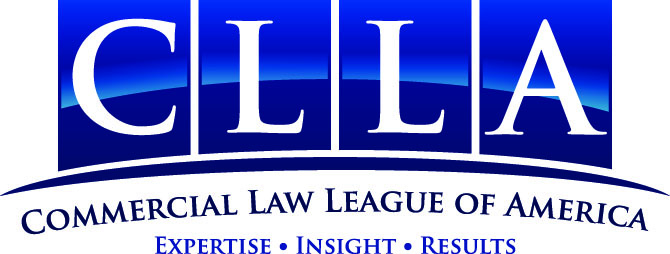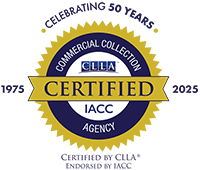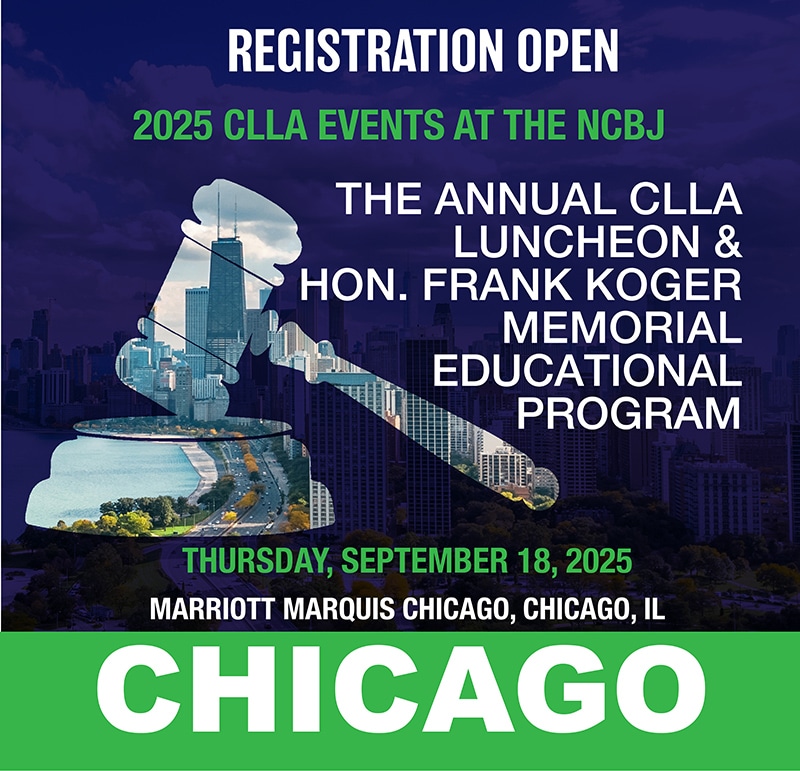2017 Newswire
ARCHIVAL
CLLA Newswire 2018
Friday, December 28, 2018
Bankruptcy Bill Aims To Keep More Small Businesses Open
Bankruptcy Bills S. 3689 and H.R. 7190 are expected to be reintroduced in 2019 to add a separate subchapter to the Bankruptcy Code for small businesses. The current Code makes it difficult for small businesses to reorganize and often results in liquidation. This new subchapter would treat small businesses more like individuals than corporate filers.
Under the new legislation businesses must file their reorganization plan within 90 days, and allows small business owners to retain a stake in the company if the reorganization plan is fair and equitable to all classes of claims or interests. It further requires the small business’s disposable income (after ordinary and necessary operating expenses are paid) is applied to the plan over a three to five year period, or a Court will not approve the plan.
The legislation further relaxes the Absolute Priority Rule and appoints a standing trustee in every case to make sure that the reorganization stays on track. To further reduce the burdens and costs on small businesses, the Bill excludes small businesses from filing a disclosure statement.
Tuesday, October 23, 2018
Senate Bill 3584 » On October 11, 2018, Senator Jeff Merkley (D) from Oregon, together with Democratic Senators Debbie Stabenow, Michigan; Kirsten Gillibrand, New York; Tammy Baldwin, Wisconsin; Richard Blumenthal, Connecticut; Brian Schatz, Hawaii; Ben Cardin, Maryland; and Catherine Cortez Masto, Nevada, introduced S. 3584 to amend the Higher Education Act of 1965 as it relates the repayment options for Federal Student Loans. This Bill aims to improve the repayment plan options for borrowers as well as increase the usage of the income-based repayment plan option. After the Bill was introduced, it was referred to the Committee on Health, Education, Labor, and Pensions. Link
Tuesday, October 23, 2018
UPDATE H.R. 6912» On September 26, 2018, Representative John Duncan (TN) introduced H.R. 6912. The bill was introduced to amend Title 11 of the U.S. Code to prohibit the payment of bonuses to highly compensated employees and insiders of the debtor to perform services during the bankruptcy case. After introduction, House Bill 6912 was referred to the House Committee on the Judiciary. Link
Friday, September 28, 2018
H.R. 6912 » On September 26, 2018, Representative John Duncan (TN) introduced H.R. 6912. The bill was introduced to amend Title 11 of the U.S. Code to prohibit the payment of bonuses to highly compensated employees and insiders of the debtor to perform services during the bankruptcy case. After introduction, House Bill 6912 was referred to the House Committee on the Judiciary. The text of the bill has yet to be published. ♦
Wednesday, August 15, 2018
HOUSE BILL 6588 » As previously advised, H.R. 6588 was introduced in the House on July 26, 2018 to amend Title 11 of the U.S. Code. The Bill text has been published and includes the language to modify the circumstances under current law to allow an individual debtor to discharge certain educational loans and educational benefits received by the debtor more than 5 years before the commencement of the bankruptcy case under such title and provides that the amendment shall not apply with respect to a debt for an educational benefit, overpayment, loan, scholarship, or stipend received by a debtor before the effective date of this Act. Link
Wednesday, August 1, 2018
CLLA Members’ Law Firm Wins Federal Lawsuit »
Jim Kozelek and Don Mausar’s (CLLA members and shareholders of Weltman, Weinberg, & Reis, Co., LPA) firm successfully defended itself in the lawsuit filed against it by the Consumer Financial Protection Bureau alleging misleading letters and lack of meaningful attorney involvement. Link
Tuesday, July 10, 2018
New York Southern District Court finds the CFPB Unconstitutional in CFPB v. RD Legal Fund, LLC.
Theodore J. Hamilton, Esq. Wetherington Hamilton, P.A. Tampa, FloridaTo prevent tyranny and protect individual liberty, the Framers of the Constitution separated the legislative, executive, and judicial powers of the new national government. To further safeguard liberty, the Framers insisted upon accountability for the exercise of executive power. The Framers lodged full responsibility for the executive power in a President of the United States, who is elected by and accountable to the people. (Judge Kavanaugh Dissent, PHH Corp v. CFPB, 881 F.3d 75 (D.C. Cir. 2018)) Link
Wednesday, June 20, 2018
2018 National Convention a Success »
PRESS RELEASE For Immediate Release
Associate Director
(312) 240-1400
Commercial Law League and IACC 2018 National Convention and Spring Meeting a Success. Robert A. Bernstein awarded 2018 CLLA President’s Cup
Rolling Meadows, IL 6/19/18 — The Commercial Law League of America (CLLA), in collaboration with the International Association of Commercial Collectors (IACC), held their third annual joint meeting at The CLLA 124th National Convention & The 187th Chicago Spring Meeting on June 6-9, 2018. Link
Monday, June 18, 2018
Bankruptcy Rules and Committee Requests »The Advisory Committee on Bankruptcy Rules is looking for feedback from the public as to whether the current Bankruptcy Rules should undergo a restyling process as the Federal Rules are doing so.
The purpose of restyling is to make the rules more simplified and understandable however bankruptcy rules have some words and phrases that are unique to bankruptcy and if changed could have unintended consequences if questions of interpretation of the restyled language is raised. In the meantime, Chief Justice John Roberts recently sent Congress amendments to the Federal Rules of Bankruptcy Procedure.
Several Rules amendments reflect a requirement that all parties represented by counsel must file electronically, thus requiring Rules that limited filings to page numbers be amended to limit by length or word count to accommodate the electronic filing requirement.
Rule 3002.1 was amended to regulate notices that must be filed by secured lenders with borrowers in Chapter 13 when a payment owed to the lender changes.
Rule 7062 was amended to clarify that in bankruptcy matters, judgments are automatically stayed for 14 days as opposed to 30 as provided in the Federal Rules of Civil Procedure.
Rule 8002 has been amended to clarify timing to file an appeal as well as setting requirements for an appeal by an incarcerated appellant.
Several Rules were also amended to now call for providing a “bond or other security” rather than the requirement to provide a “supersedeas bond” to conform with new changes to the F.R.C.P. 62.
One new Rule is Rule 8018.1 was drafted to address what to do if a district court determines on an appeal that the bankruptcy court lacked Article III authority to enter judgment, order or decree. Unless Congress intervenes with new law, these amendments will go in to effect on December 1, 2018 and apply to all new cases and some pending cases “insofar as just and practicable” as ordered by the Supreme Court.
Monday, June 18, 2018
Mulvaney Taps Ex-FTC Consumer Chief to Oversee CFPB Rulemaking »
Mick Mulvaney, acting Director of the CFPB has appointed Thomas Pahl to oversee the regulatory efforts of the Bureau, including the Division of Research, Markets & Regulation, as well as the Associate and Assistant Director.
At the time of appointment, Pahl had been leading the consumer protection issues at the Federal Trade Commission, but Pahl is also a former CFPB official and previously worked on the Bureau’s efforts to update rules for debt collection under the Fair Debt Collection Practices Act.
Mulvaney has previously indicated that debt collection is one area where the CFPB could move forward with rulemaking.One area of particular interest, especially in light of Pahl’s appointment, is whether lawyers should be covered under the FDCPA.The CFPB has targeted several law firms for improper debt collection practices.In December, Pahl was quoted for stating that the FDCPA should not cover attorneys; state legislation and bar rules should be sufficient to protect consumers from abuses by attorneys.
Monday, June 18, 2018
The Trump CFPB Seen As Shifting To By-The-Book Supervision » Under acting Director of the Consumer Financial Protection Bureau, Mike Mulvaney, the supervisory process of banks and credit unions has been moving along at its usual pace; however there appears to have been a shift in what the examiners have been looking for when they review the books at the financial institutions.
What the examiners are looking for has changed as they are focusing on strict compliance with the laws on the books rather than industry practices that might be legal but could raise UDAAP issues.Under former Director, Richard Cordray, the CFPB was criticized for the examiners looking at broader trends rather than technical violations which at times, “tripped up” businesses that were not violating the existing law. ♦
Monday, June 18, 2018
House Bill 5633 » As previously advised, H.R. 5633 was introduced in the House on April 26, 2018. The text of the Bill has now been published and is known as the HANGUP Act to help Americans never get unwanted phone calls. Link
Thursday, April 12, 2018
CFPB Says Considering If Complaint Process Should Be Changed » The Consumer Financial Protection Bureau has previously announced that it will be seeking feedback on the Bureau’s handling of consumer complaints and inquiries. Acting Director Mick Mulvaney has recently added that the CFPB seeks this feedback to ensure that the agency is fulfilling the “proper and appropriate functions” for which the agency was created in 2011.How the agency has dealt with complaints has been debated since inception. Bank industry groups have argued that making complaints public could allow frivolous complaints to damage the reputation of innocent brands. On the other hand, the consumer advocacy groups pushed for public complaints to warn consumers. ♦
Tuesday, April 10, 2018
Chapter 11 Not Suited for Small Businesses, Senate Panel Told » On March 7, 2018, the oversight subcommittee of the Senate Judiciary held a hearing to discuss proposals to revise the Bankruptcy Code. More specifically, to better facilitate Chapter 11 reorganizations for small and medium enterprises (SMEs).
Several witnesses appeared before the subcommittee to lend their opinion as to the effectiveness of the current Code for SMEs. There was a strong consensus among professionals that Chapter 11 is ill-suited and not effective for small and medium businesses. The expense alone can deter small businesses to completely avoid filing Chapter 11.
Two proposals were submitted at the hearing, one from the American Bankruptcy Institute and the other National Bankruptcy Conference. Each attempting to address the much needed fix for SME reorganization.
The American Bankruptcy Institute’s plan would amend provisions of Chapter 11 as it pertains to small businesses. Those revisions include:
- Removing artificial deadlines that are unrealistic to meet, this will allow SMEs to establish sensible timelines
- Reducing the amount of information an SME debtor must provide
- Reduce SME reporting requirements
- Remove the requirement to have a committee of unsecured creditors appointed for an SME case unless specifically requested by a creditor
- Allow a party to request a neutral professional to be appointed with skills tailored to the particular debtor and the problems they are facing
- A reduction of the cost for SMEs by streamlining the reorganization process
- Providing an option that would allow an SME owner to maintain some ownership interest in the company
The National Bankruptcy Conference’s proposal is one that creates a system where small business debtors (those with less than $7.5 million debt) would be treated more like Chapter 12 or 13 debtors. In this system a creditors committee would not be appointed and creditors would not vote to approve a plan. An additional proposal under the NBC plan would be a revision to the absolute priority rule and would allow owners to retain their companies even if all creditors are not paid in full.
Monday, April 9, 2018
Mulvaney Asks Congress to Wield More Power Over CFPB » In a semi-annual report, Acting Director of the Consumer Financial Protection Bureau, Mick Mulvaney asked Congress to approve major rule changes he is proposing which include giving Congress power over the agency’s appropriations, and calls for an independent CFPB inspector general. Mulvaney acknowledges that many Members of Congress disagree with his proposal, but argues that the Bureau is far too powerful with far too little oversight as evidenced by the enactment of Dodd-Frank.
This announcement has been met with much opposition. Policy Director for the center on Regulation and Markets argued that Congress established the CFPB for the purpose of protecting consumers from abuses, they did not create the agency simply to create regulations for itself. He further argues that subjecting the CFPB to appropriations by Congress would only weaken oversight.
The CFPB is currently working on a proposed rule on debt collectors’ consumer disclosures and communications practices to include robocalls and robotexts as they were the agency’s Number 1 consumer complaint last year. There is also talk of potential changes to the federal mortgage disclosure requirements in the Truth in Lending Act. ♦
Wednesday, April 4, 2018
DeVos Moving Ahead on Overhaul of Student Loan Processing System » The Trump administration is moving forward to overhaul the current online student loan processing and servicing platform. The new program will be known as the Next Generation Financial Services Environment, or better known as NextGen. The upgrade will focus on better customer service and stronger consumer protections while still ensuring students will get the money that they need to pay for a college education.
It is most often agreed that the student loan debt totaling almost $1.5 trillion puts additional strain on the economy as this debt only further delays the borrowers from purchasing homes, vehicles and the like because of their large student loan debt after graduation. The goal of NextGen is to give prospective borrowers a better understanding of the financial implications their debt will have so they can make more informed decisions when it comes to loan types, repayment options and protections.
The Office of Federal Student Aid (FSA) has been tasked with overseeing the NextGen project, and aims to build a platform that with match users of the online system with a portfolio of options tailored to match their goals and financial circumstances. Part of this project includes a mobile app called, MyStudentAid that will make access to educational content and counseling available on the borrower’s smartphones.
DeVos’s push also includes specific reforms to reduce financial hardship and curb default rates. Those reforms include:
- Providing additional customer service/counseling for borrowers at the greatest risk of default
- Reforming the process for loan forgiveness for disabled borrowers or those incapable of repaying their loans
- Completing pilot programs to explore innovative ways to assist delinquent borrowers
- Expanding available data regarding loans in default to provide a more clear and direct picture to borrowers
Launching a feedback system to encourage borrowers to easily come forward with concerns/complaints about loan servicers or educational institutions.
Thursday, March 29, 2018
Senate Bill 2564 » Senator Thomas Tillis (NC) introduced S.2564, which is co-sponsored by Senators Cornyn (TX), Grassley (IA) and Hatch (UT). The official title of the bill is “Protect Asbestos Victims Act of 2018” and was introduced to amend title 11, United States Code, to promote the investigation of fraudulent claims against certain trusts, to amend title 18, United States Code, to provide penalties against fraudulent claims against certain trusts, and for other purposes. After introduction, the Bill was referend to the Senate Committee on the Judiciary. ♦
Tuesday, March 20, 2018
Trump Administration Backs Student Loan Collectors » The Trump Administration and the Education Department are taking steps to shield student loan collection companies from state regulators. Betsy DeVos, Education Secretary, will soon issue a declaration citing that only the federal government, not the states, has the authority to oversee federal student loan servicers and companies collecting on those loans are off limits for state lawmakers and regulators. Link
This comes after months of lobbying by the student loan industry for federal government protection from the states attempting to crack down on them. The notice is expected to address state laws that attempt to regulate collection companies working on behalf of the federal government. DeVos emphasizes that collection of federal loans “implicate uniquely federal interests” and an attempt of state regulation of the servicers of federal loans conflicts with Congress’ objective of streamlining federal student lending.
This move by the Education and Justice departments will help the student loan industry push back against the states. DeVos notes that these rules are needed to improve the quality of student loan servicing.
The notice appears to mirror a filing the Justice Department made earlier this year siding with a loan servicer being accused by the State of Massachusetts of violating state consumer protection laws. The Department argued that the state cannot pursue legal claims against the servicer because they are preempted by federal law.
While consumer advocates and almost half of the attorneys general argue that states have the right to oversee companies operating within their borders to collect from their residents, the CFPB and its officials publicly suggest they would be in favor of the new regulations as they have stated the Education Department hasn’t done enough to police the loan collectors. Additionally, the Justice Department attorneys write, “this result is necessary to preserve the important federal interests in cost-effectively and uniformly administering and streamlining the federal student loan program”.
Tuesday, March 20, 2018
Rules on Student Loans in Bankruptcy to Be Revisited » The Education Department is asking for public comments on evaluating claims of undue hardship. Currently, student loans can be discharged in bankruptcy only if there is an undue hardship, a term that has yet to be defined by Congress and the Department does not have the authority to define it. The Department is aware of their obligation to taxpayers to determine the most effective way to collect on federal student loans, but doesn’t want the federal government expending a lot of energy and money to attempt to collect debts that will never be repaid.
Meanwhile, the House and Senate have both introduced legislation that if passed, would allow private student loans to be discharged in bankruptcy. President of the Center for Academic Renewal, Jenna Robinson, told a Senate committee earlier this month that allowing private student loans to be treated like other loans in bankruptcy will give an incentive to lenders to lend more wisely which would ultimately decrease the private student loans awarded to students who cannot pay them back. ♦
Wednesday, March 14, 2018
Senate Bill 2425 » As previously advised, S. 2425 was introduced into the Senate. The bill has now been published and a copy of the Bill, as introduced is attached for your review. The purpose of the Bill is to amend the Internal Revenue Code of 1986 to repeal the Internal Revenue Service’s private debt collection program. To date, the Bill remains in the Committee on Finance. ♦
Thursday, March 8, 2018
Senate Bill 2518 » On March 7, 2018, Senator Richard Durbin (IL) introduced S.2518, which is co-sponsored by Senators Sheldon Whitehouse (RI) and Sherrod Brown (OH). The bill was introduced to amend title 11, U.S. Code, to improve protections for employees and retirees in business bankruptcies.
After introduction, the Bill was referred to the Senate Committee on the Judiciary. The text of the bill has yet to be published, but will be updated here upon its release. ♦
Friday, March 2, 2018
Senate Judiciary Committee Hearing » A hearing has been scheduled for the Senate Judiciary subcommittee on Oversight, Agency Action, Federal Rights and Federal Courts. The hearing is scheduled for March 7, 2018 @ 2:30 and will focus on “Small Business Bankruptcy: Assessing the System”. Chairman Sasse (Nebraska), will be presiding over the meeting and it can be viewed at in real time. Link
Friday, March 2, 2018
CFPB Requests Info on Consumer Complaint Reporting » According to an emailed statement from the Consumer Financial Protection Bureau, they are seeking information from interested parties on the usefulness of the reporting and analysis of complaints. Additionally, they are seeking specific suggestions and/or bet practices for such reporting.
The Bureau states that it intends to issue separate requests for information on the rule-making process, adopted rules and inherited rules, as well as information on consumer education and inquiries. ♦
Friday, March 2, 2018
Growing Student Debt Could Hold Back Growth » Jerome Powell, Fed Chairman, has acknowledged that while it is important for Americans to borrow to invest in their future, he fears that over time the student loan debt could pose a macroeconomic risk to growth in the United States. Research has shown that borrowing without first making informed decisions has a longer term negative effect on people who cannot pay off their student loans and reminds us that student loan debt cannot be discharged in bankruptcy. ♦
Wednesday, February 28, 2018
House Bill 5082 » On February 23, 2018, Representative Alexander Mooney (WV) introduced H.R. 5082, which is co-sponsored by Representative Vicente Gonzalez (TX). The bill was introduced to amend the Fair Debt Collection Practices Act to exclude law firms and licensed attorneys who are engaged in activities related to legal proceedings from the definition of a debt collector, to amend the Consumer Financial Protection Act of 2010 to prevent the Bureau of Consumer Financial Protection from exercising supervisory or enforcement authority with respect to attorneys when undertaking certain actions related to legal proceedings, and for other purposes.
After introduction, House Bill 5082 was referred to the House Committee on Financial Services. The text of the bill has yet to be published, however once made available I will forward same. ♦
Monday, February 12, 2018
Trump CFPB May Act on Debt Collection As it Pulls Back Elsewhere » Acting director of the Consumer Financial Protection Bureau, Mick Mulvaney recently stated that while the bureau will scale back rulemaking and enforcement in 2018, it will focus on debt collection as complaints continue to climb at the Dodd-Frank agency. One third of those complaints are related to debt collection. The complaints include harassing phone calls, the wrong debt for the wrong person, revealing debts to third parties as well as issues with modern technology such as text messages and social media. In 2016, under the former director of the bureau, a proposal was outlined that aimed to address issues with third-party debt collectors and debt buyers initially and bank and first-party creditors at a later date. Many however doubt that the Trump CFPB will follow the 2016 plan. ♦
Thursday, January 25, 2018
Bankruptcy Filings for 2017 “Flattened Out” » The latest figures from the Administrative Office of the U.S. Courts show that for the 12 month period ending December 31, 2017, bankruptcy filings (789,020 cases filed) were down 0.7% from 2016 (794,960 cases filed). While this is the smallest 12 month percentage decline, records show that this is the lowest number of bankruptcy filings for any calendar year since 2006. However, the American Bankruptcy Institute predicts that as borrowing begins to rise again, so will bankruptcy filings. The total case filings broken down by Chapter show that 2017 had 486,347 Chapter 7 filings; 7,442 Chapter 11 filings; 501 Chapter 12 filings; and 294,637 Chapter 13 filings. ♦
Wednesday, January 10, 2018
Senate Bill 2282 » On January 8, 2018, Senator John Cornyn from Texas, for himself and Senator Elizabeth Warren from Massachusetts, introduced S. 2282 to amend title 28 of the U.S. Code to modify venue requirements in bankruptcy proceedings. The amendment requires debtors to file for bankruptcy in the district where their principal assets, domicile or residents is located restricting an individual debtor from filing in a district on the basis of state of incorporation alone. Link
Wednesday, January 10, 2018
Mortgage Company Dodges Claim After Making 1,000 Phone Calls » Ocwen Loan Servicing LLC allegedly made over 1,000 phone calls to Plaintiff, Elizabeth Geismar without her consent and sought relief for negligence under the Telephone Consumer Protection Act. Ocwen filed to dismiss the claim stating a lack of standing to sue as she did not suffer any injury.
The U.S. District Court for the Northern District of California disagreed with Ocwen’s claim in that Plaintiff’s personal privacy was invaded from persistent phone calls and allowed the claim to proceed. The claim was later dismissed by the Court citing that the loan servicing company was not an active participant in the financed enterprise relating to Plaintiff’s loan, Defendant owed no duty of care to the Plaintiff. ♦
Monday, January 8, 2018
Senate Bill 2267 Update » As previously advised, On December 21, 2017, S. 2267 was introduced in the Senate. Additional information has been published as well the. The Bill was introduced as The Pension Priority Act and referred to the Senate Judiciary Committee thereafter.
The intent of the Bill is to allowing unsecured claims resulting from the termination of an employee pension benefit plan covered under the Employee Retirement Income Security Act for withdrawal liability; for awards pursuant under the Act; for delinquent contributions and obligations under the Act; and other obligations owed to the employee and/or the Pension Benefit Guaranty Corporation. Link






